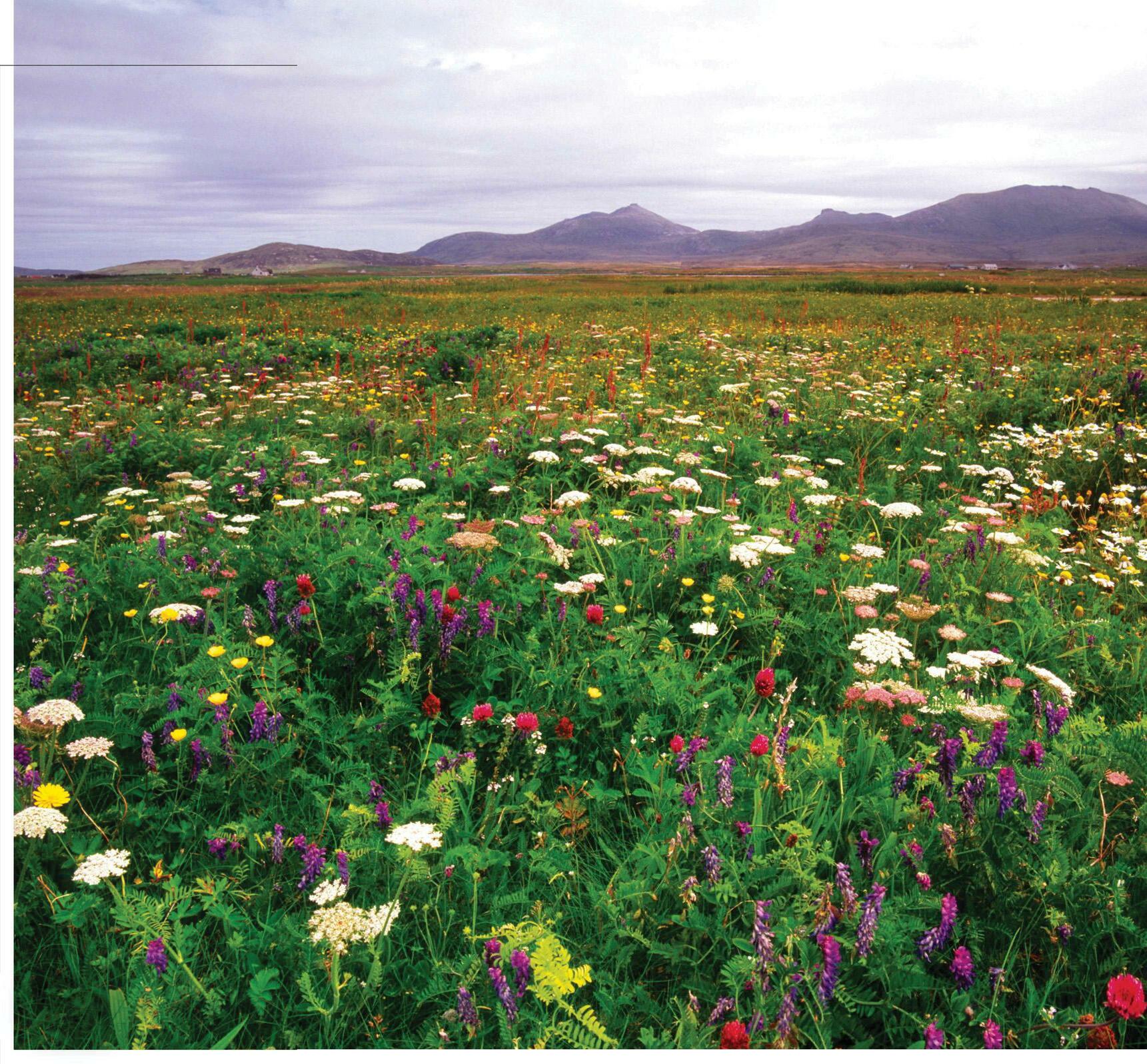Essayer OR - Gratuit
PURE SHORES - MACHAIR IN BLOOM
BBC Wildlife
|July 2023
Head to the sandy coastlines of Scotland and Ireland to enjoy a dazzling diversity of wildflowers

Coming from the Gaelic for a fertile, low-lying grassy plain, ‘machair’ describes a rare coastal habitat, famed not only for its plentiful bird life in spring but also its beautiful array of wildflowers throughout summer. Covering a total area of just 19,000ha globally, machair is not just one of the rarest habitat types in Britain, but also right across Europe. It can only be found along a few exposed Atlantic-facing coasts in north-west Scotland and Ireland, with the majority concentrated along the western shores of the Outer Hebrides, Tiree and Coll.

Machair grassland usually sits alongside white sandy beaches and among sand dunes, and will even merge into marshes as it stretches inland. It began to form in earnest at the end of the last age and was subsequently maintained by human influences in the form of low intensity farming – or crofting.
Cette histoire est tirée de l'édition July 2023 de BBC Wildlife.
Abonnez-vous à Magzter GOLD pour accéder à des milliers d'histoires premium sélectionnées et à plus de 9 000 magazines et journaux.
Déjà abonné ? Se connecter
PLUS D'HISTOIRES DE BBC Wildlife

BBC Wildlife
SNAP-CHAT
Lara Jackson talks magical otters, curious rhinos and ticks in the toes
3 mins
October 2025

BBC Wildlife
What's the difference between global warming and climate change?
PEOPLE OFTEN USE THE TERMS global warming and climate change interchangeably, but they describe different concepts. Global warming refers to Earth’s increasing surface temperature.
1 min
October 2025

BBC Wildlife
THE FROZEN CONTINENT
Visit the epic landscapes of Antarctica with HX Hurtigruten Expeditions, the unique cruise line made for curious travellers
3 mins
October 2025

BBC Wildlife
Dragonfly dialogue
STARTED TALKING TO DRAGONFLIES IN India at a place where my husband and I stayed several times in the foothills of the Himalayas.
1 mins
October 2025

BBC Wildlife
What's the largest animal gathering on Earth?
PEOPLE LOVE A PARTY. BUT AS POPULOUS as our species is, the headcounts at our gatherings don't match those of other species. The Maha Kumbh Mela, a Hindu pilgrimage in Prayagraj, India, drew more than 660 million people in January 2025. But this horde - thought to be the largest in human history – pales in comparison to the groups formed by our animal relatives.
1 mins
October 2025

BBC Wildlife
Do plants have memory?
TO HAVE TRUE MEMORY AN ORGANISM requires brain cells to store experiences through the action of sophisticated neurotransmitters. Plants lacking brain cells therefore cannot be said to have that capacity for memory. However, there is evidence that some plants adapt their characteristics based on 'remembered' experiences.
2 mins
October 2025

BBC Wildlife
wild OCTOBER
7 nature encounters for the month ahead
3 mins
October 2025

BBC Wildlife
Do sharks have bones?
WHILE HUMANS HAVE A BONY skeleton, parts of our bodies - such as our noses - are made of cartilage. This soft, flexible material forms the entire skeletons of sharks and rays.
1 min
October 2025

BBC Wildlife
KATE BRADBURY
As the nights draw in, encountering bats can be a magical adventure
2 mins
October 2025

BBC Wildlife
Cool runners of the desert
The beetle that beats the heat by sprinting
1 mins
October 2025
Translate
Change font size
